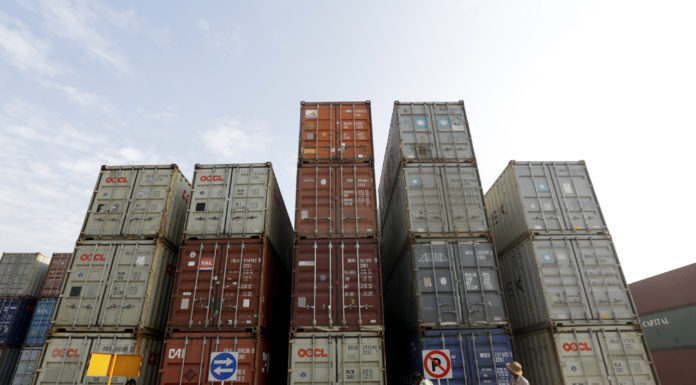As Nigeria loses N1 trillion annually to port inefficiencies, maritime analysts and the Organised Private Sector are canvassing for a Single Window Platform that will enable importers and exporters to lodge standardised documents through a single entry point. They say this will reduce 20 government agencies currently operating at the ports to six, enabling the ports to function as a trade facilitator.
They also want to see consistent and proactive policy that will reduce the cargo clearance timeline from between five and 14 days to two days, which is the standard time in Egypt, South Africa and Morroco.
Latest report by the Lagos Chamber of Commerce and Industry (LCCI) and the Financial Derivatives Company shows that the N1 trillion losses emanates from 14 government departments, broken into 20 agencies, whose activities involve a lot of paper work, which could easily have been eliminated with one single window platform and the ICT.
“What the single window will do for the players is that it will eliminate multiplicity of agencies by creating a single clearance and payment desk with an immediate cross-cutting positive impact at the ports,” said Vincent Nwani, director, research and advocacy at the Lagos Chamber of Commerce in Lagos.
Nigeria has six major ports, which include Apapa Port, Tin-Can Island Port, Calabar Port, Onne Port, Rivers Port, and Warri Port.
Cargo clearance timeline takes five to 14 days at the ports as against the ideal period of two days or less in Egypt, South Africa and Morroco. It requires 23 signatures by 18 agencies, whereas exporting a cargo goes through 20 agencies and 33 signatures, research shows.
The impact of this is that Nigeria lags peers in 20-foot equivalent units, as the country currently does 1.1 million units as against 10 million potential capacity. South Africa currently does 4.8 million 20-foot equivalent units, while Egypt is higest with 8.8 million TEUs, says the latest report.
Jonathan Nicole, president of Shippers Association of Lagos State, said Nigeria needs to protect her cargo through consistent policy and well followed development plan, adding that the country loses over N600 million alone to the diversion of Nigerian bound vehicles to Cotonou and Lome ports.
“There is need for Nigerian port to be fully automated and the issue of a single window online platform that would connect all the operators and agencies at the port should be taken seriously, if Nigerian seaport would have timely delivery of cargo to the importers warehouse,” Nicole said.
According to Nicole, this would not only make Nigerian seaport user friendly but would also put an end to the avoidable delays that incur demurrage and storage cost on importers. He further called for the reduction of the number of government agencies at the port, whose presence, he observed causes lots of delay and cost for importers.
Lucky Amiwero, president, National Council of Managing Directors of Licensed Customs Agents (NCMDLCA), said that the N1 trillion annual loss is even underestimated because the latest report fails to factor in the impact of cargo diversion to other West African ports like Cotonou port that handles over 60 percent of vehicles and rice that come into Nigerian market.
The revenue loss, Amiwero observed, is huge because both the port users, officers of government agencies and operators do not follow import procedure as well as the rules guiding international trade. Government, on their part has refused to be consistent in its policy formulation and this is also fueling the lost.
“To block this revenue leakages, government need to employ the services of experts to guide them on how to put the industry on track and there is also need to create the right fiscal and monetary policies that would drive the economy positively,” he added.
He delays at ports and poor infrastructure are frustrating exporters amid Nigeria’s drive for foreign exchange. Exporters of foods and other light products complain that 20 percent of their products are damaged before they get to the ports, owing to poor state of roads leading to major ports.
“There is huge infrastructure challenge. Again, we have security agents at the ports who are not supposed to be there. They are poorly trained and most of them are not properly educated,” Jon Kachiukwu, CEO, Jon Tudy Interbiz, exporter to the USA, told BusinessDay in a telephone chat.
Olisa Agbakoba, lawyer and maritime expert, at a conference in Lagos last Thursday. Urged the Standards Organisation of Nigeria (SON) and the National Food and Drug Administration and Control (NAFDAC) to have a one-stop shop to ensure that all agencies do not inhibit business at the ports/
